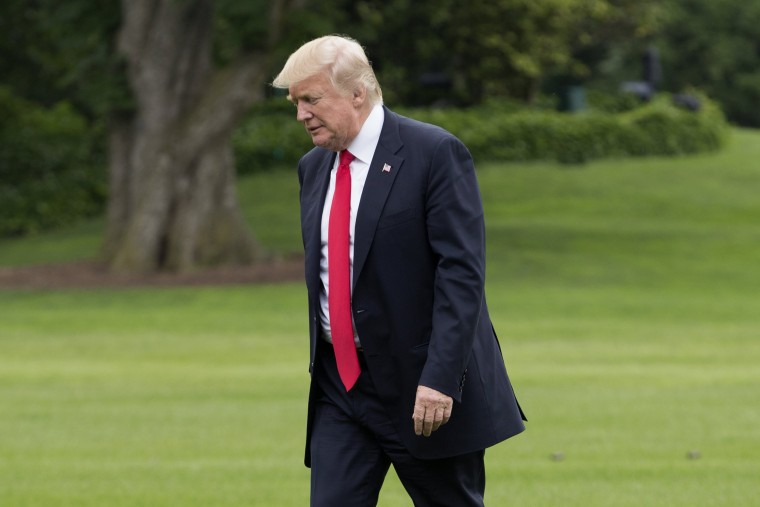A trio of federal appellate judges in San Francisco on Monday ruled against President Donald Trump's second try at imposing a so-called "travel ban" that would restrict refugees and people from six predominantly Muslim countries from entering the U.S.
The 9th U.S. Circuit Court of Appeals panel unanimously upheld an earlier decision by a federal judge in Hawaii to block the government from enforcing Trump's executive order.
"The Immigration and Nationality Act ("INA") gives the President broad powers to control the entry of aliens, and to take actions to protect the American public," the judges wrote in their opinion. "But immigration, even for the President, is not a one-person show. The President's authority is subject to certain statutory and constitutional restraints."
Trump, the judges wrote, "exceeded the scope of the authority delegated to him by Congress" and they disputed his claim that there weren't adequate safeguards in place to keep terrorists out.
"There is no finding that present vetting standards are inadequate, and no finding that absent the improved vetting procedures there likely will be harm to our national interests," the judges wrote. "These identified reasons do not support the conclusion that the entry of nationals from the six designated countries would be harmful to our national interests."
In their opinion, the judges also cited Trump's Tweets in which he declared "we need a TRAVEL BAN for certain DANGEROUS countries" and a declaration by White House Press Secretary Sean Spicer that Trump's tweets are "considered official statements" by the President of the United States.
Trump as said the orders are necessary to protect Americans from terrorism and campaigned on a pledge to institute "extreme vetting" of foreigners seeking to enter the country. But administration officials avoided calling the travel restriction a "ban" after critics claimed it was akin to a "Muslim ban."
Related: Trump Tweets in Favor of 'Original' Travel Ban
Spicer strongly defended the Trump's executive orders in his daily briefing on Monday and said the administration was reviewing the opinion as it weighed its next steps.
"We continue to be confident that the president’s executive order to protect this country is fully lawful and ultimately will be upheld by the Supreme Court,” he said. "Frankly I think any lawyer worth their salt 100 percent agrees that the president is fully within his rights and his responsibility to do what is necessary to protect the country."
But Spicer declined to address a question about whether Trump's Twitter postings helped torpedo his executive orders.
"I think we can all attest that these are very dangerous times and we need every tool at our disposal to prevent terrorists from committing acts of bloodshed and violence,” Spicer said.
U.S. District Judge Derrick Watson, who was appointed by former President Barack Obama, issued a temporary restraining order on March 15 that blocked Trump’s revised executive order, which the president issued after a federal judge in Washington state blocked his first order and after an appeals court refused to reinstate it.
The new order lowered the named nations from seven to six by dropping Iraq from the list — and, among other changes, it specified that it does not explicitly apply to current lawful permanent residents and green card holders. The second order also imposed a 90 day ban on travel from Iran, Syria, Sudan, Libya, Somalia, and Yemen.
Both orders also would have put on hold admissions to the U.S. of refugees for 120 days. The first order indefinitely suspended admission of Syrian refugees, but that was dropped in the revised order.
The opinion upholding Watson's freeze was authored by judges Michael Daly Hawkins, Ronald Gould and Richard Paez, all of whom were appointed by President Bill Clinton.


